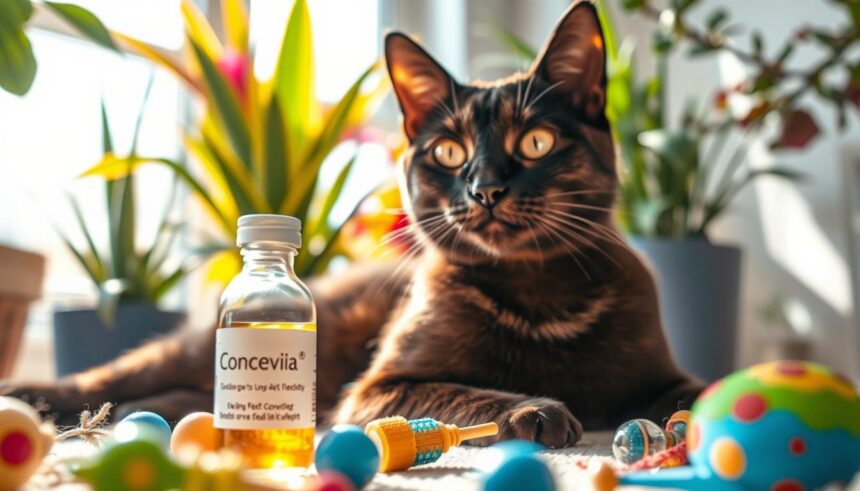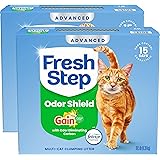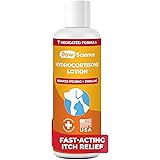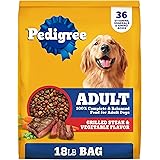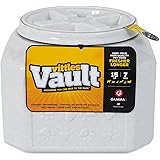Convenia offers up to 14 days of antibiotic treatment with just one shot. It’s a fast and effective way to treat common bacterial skin infections in cats. As a cat owner, knowing about Convenia is key to keeping your pet healthy. It works well against bacteria like Staphylococcus intermedius, Escherichia coli, and Pasteurella multocida.
Convenia treats many issues in cats, like bacterial folliculitis and infected wounds. It’s a single dose that lasts up to 14 days. This makes it easy for cat owners to use. We’ll talk about how Convenia helps keep your cat healthy and its benefits and risks.
Key Takeaways
- Convenia provides up to 14 days of effective antibiotic treatment from a single injection.
- Convenia is effective against common bacteria such as Staphylococcus intermedius, Escherichia coli, and Pasteurella multocida.
- The antibiotic shot for cats has been shown to be effective in treating urinary tract infections in cats.
- Convenia should not be administered to kittens younger than 8 weeks old or animals with known hypersensitivity to cephalosporin or penicillin.
- Responsible antibiotic use is crucial to maintain your cat’s health and prevent antibiotic resistance.
- Convenia is a convenient option for cat owners due to its long-acting injectable antibiotic properties.
What is Convenia for Cats?
Convenia is a long-acting antibiotic for cats. It treats bacterial infections like skin infections, abscesses, and wounds. Knowing how Convenia works helps us understand its benefits and convenia side effects in cats.
Overview of Convenia
Convenia is a cephalosporin antibiotic given by injection. It’s 96.8% effective against skin infections in cats. It stops bacteria from growing, helping your cat’s immune system fight the infection.
How Convenia Works
Convenia kills bacteria by breaking down their cell walls. Its effects last for 14 days after use. It’s important to know how long does convenia stay in a cat’s system, which is about 6.9 days. Here’s more about Convenia:
| Characteristic | Description |
|---|---|
| Effectiveness against skin infections | 96.8% |
| Antimicrobial effects duration | 14 days |
| Elimination half-life in cats | 166 hours (approximately 6.9 days) |
Uses of Convenia in Feline Health
Convenia is a versatile antibiotic for cats. It’s used to treat various bacterial infections. It’s especially useful for convenia injection for feline UTI and convenia for cat abscess.
Common Conditions Treated
Convenia fights many types of bacteria. It’s good against Gram-positive, Gram-negative, and anaerobic bacteria. It treats:
- Urinary tract infections
- Abscesses
- Skin infections
Benefits of Using Convenia
Convenia is easy to use and works well. It has few side effects. A single shot can treat for up to 14 days. This makes it easier for cats to get the treatment they need.
How is Convenia Administered?
Convenia is given as an injection. The dose depends on the cat’s weight. For a 10-pound cat, the usual dose is 0.45 mL. Always follow your vet’s instructions for the best results.
Injection Process
The injection for Convenia is a single subcutaneous shot by a vet. The cat gets 3.6 mg per pound (8 mg/kg) of body weight. It’s important to have a vet do the injection to ensure it’s done right and safely.
Frequency of Treatment
The treatment schedule for Convenia varies based on the infection’s severity and the cat’s response. The drug’s antibacterial effects last about 1-2 weeks. But, it stays in the body for over 2 months (65 days).
The usual treatment time for Convenia is 7 to 14 days. A maximum of 2 injections are recommended per treatment.
Some important things to remember about Convenia include:
* It comes as a powder for injection in a 10 mL bottle with 800 mg. It’s mixed to a concentration of 80 mg/mL.
* The drug is good for 56 days after mixing, if stored in its original carton in the fridge.
* Cats may experience vomiting, diarrhea, loss of appetite, tiredness, hyperactivity, and inappropriate urination as side effects.
* It’s not recommended for pets under 4 months old because its safety in this age group is unknown.
Working closely with your vet is key to finding the right treatment for your cat. This includes the right dose of Convenia for the best outcome.
| Medication | Dosage | Administration Method |
|---|---|---|
| Convenia | 3.6 mg per pound (8 mg/kg) | Single subcutaneous injection |
Side Effects of Convenia for Cats
Convenia is an antibiotic for cats with bacterial infections. It can cause side effects. Common side effects include vomiting, diarrhea, and feeling very tired. These effects are usually mild but can be serious in some cases.
Keep an eye on your cat after giving them Convenia. If they show signs like not wanting to eat or trouble breathing, get help right away. Rarely, Convenia can lead to severe anemia, which is very dangerous.
Some common side effects of Convenia in cats include:
- Vomiting
- Diarrhea
- Lethargy
- Decreased appetite
Even though Convenia is safe for cats, it’s important to follow the dosage and instructions. If you’re worried about side effects, talk to your vet.
When to Use Convenia
Convenia is a common antibiotic for cats with bacterial infections, like upper respiratory ones. Knowing when to use it is key to treat infections well and avoid antibiotic resistance. If your cat has signs of a bacterial infection, like discharge or coughing, see a vet right away.
Convenia is often given for bacterial infections. It works for up to 14 days after one shot. But, it’s important to use it only when needed to avoid resistance.
- Bacterial infections, such as upper respiratory infections, skin infections, or urinary tract infections
- Severe infections that require immediate treatment
- Infections that are not responding to other treatments
Always talk to your vet about the best treatment for your cat. They will guide you on when to use Convenia and how to use it wisely to fight resistance.
| Indication | Dosage | Duration |
|---|---|---|
| Upper respiratory infection | 8 mg/kg | Up to 14 days |
Alternatives to Convenia
Looking for an antibiotic shot for cats? It’s key to check out other options besides Convenia. Some people and vets might choose shorter-acting antibiotics because of safety worries. The antibiotics for cats list has many choices.
Oral meds like amoxicillin and enrofloxacin are good alternatives. They might be better if the cat can’t get an injection or if owners worry about Convenia’s side effects. Also, probiotics and herbal supplements can help a cat’s health, but their effects can differ.
Talking to a vet is vital before trying any new treatments. They can pick the best antibiotic for your cat, based on their health and needs.
| Antibiotic | Administration | Duration of Action |
|---|---|---|
| Amoxicillin | Oral | Varies |
| Enrofloxacin | Oral | Varies |
Cost of Convenia Treatment
The cost of Convenia treatment for cats can change based on several things. This includes the cat’s weight and how bad the infection is. On average, a Convenia injection can cost between $400 to $500. This price can vary based on where you are and the vet clinic.
It’s important to talk to a vet to figure out the best treatment for your cat. They can also help you understand the costs of Convenia for cats. The cost might go up if your cat needs more than one injection.
- Cat’s weight: The cost of treatment may be higher for larger cats, as they require a higher dose of the medication.
- Severity of the infection: More severe infections may require a longer course of treatment, which can increase the overall cost.
- Location: The cost of treatment can vary depending on the location and the veterinary clinic.
Talking to a vet about the costs and benefits of Convenia treatment is key. This way, you can make the best choice for your cat’s health and happiness. Knowing what affects the cost helps you make a smart decision.
Veterinarian’s Role in Convenia Prescription
A veterinarian is key in prescribing Convenia and watching its effects. When talking about convenia side effects in cats, it’s vital to work with your vet. They can help find the best treatment for your cat.
Your vet can explain the benefits and risks of Convenia. They will also guide you on how to give the medicine.
Some important things to talk about with your vet include:
- Potential convenia side effects in cats, such as skin infections or urinary tract infections
- The importance of monitoring your cat’s health after administering Convenia
- Any potential interactions with other medications your cat may be taking
By teaming up with your vet, you can make sure your cat gets the best care. This helps avoid convenia side effects in cats. Always ask questions and seek advice if you’re worried about Convenia or your cat’s health.
Storage and Handling of Convenia
Storing and handling Convenia correctly is key for its effectiveness and safety. It should be kept in a cool, dry spot, away from light. This is especially true for treating feline UTI with Convenia injection, as bad storage can reduce its strength.
It’s vital to follow the expiration and disposal rules for Convenia. The FDA has okayed it for cats, and it works against bacteria for about 1 to 2 weeks. Store Convenia in a place that’s not too sunny or wet to keep it from breaking down.
- Store Convenia in its original packaging to protect it from light and moisture.
- Keep Convenia away from children and pets to avoid accidental ingestion.
- Follow the expiration date on the packaging to ensure the drug’s effectiveness.
- Dispose of expired or unused Convenia according to local regulations and guidelines.
By following these tips, you can ensure Convenia is used safely and effectively for feline UTI. Always talk to your vet for specific advice on storing and handling Convenia.
Frequently Asked Questions about Convenia
Many cat owners wonder about Convenia’s safety and how well it works. It’s important to clear up these doubts with the right info. One big question is how long the treatment lasts. Convenia works fast, lasting up to 14 days, and starts working in just 30 minutes.
Safety Concerns for Use
Convenia is usually safe for cats, but it’s key to listen to your vet and watch your cat closely. Side effects like vomiting, diarrhea, tiredness, and less appetite can happen but are rare. These effects are similar to other antibiotics.
Duration of Treatment Effects
The time Convenia works can change based on the cat and the infection. But usually, one shot can treat for up to 14 days. Always talk to your vet to find the best treatment plan for your cat.
Convenia has many good points for cats. It works quickly and lasts a long time, and it’s safe and effective. Used right, it’s a great way to treat common skin infections in cats.
| Benefits of Convenia | Description |
|---|---|
| Fast-acting | Detectable concentrations at the site of infection within 30 minutes of injection |
| Long-lasting | Can provide up to 14 days of treatment |
| Safety and efficacy | Generally safe and effective when used as directed |
Convenia and Cat Vaccinations
Keeping your cat healthy is key, and that includes vaccinations and antibiotics. An antibiotic shot for cats like Convenia can boost your cat’s health when used with vaccines.
It’s important to know when to give these treatments. Convenia helps your cat’s immune system. Always talk to your vet about the details.
Convenia is great for enhancing overall health. It fights bacterial infections for a long time. This can prevent serious health problems. Always follow the dosage and schedule your vet recommends.
Some things to think about when using Convenia with vaccines are:
- When to give the vaccine and antibiotic
- How Convenia might react with other medicines
- Watching your cat’s health and changing treatment if needed
By listening to your vet and following their advice, you can keep your cat healthy and happy.
Analysis of Convenia’s Effectiveness
Convenia is effective in treating bacterial infections in cats, with a high success rate. It’s important to look at the convenia side effects in cats for safe use. Studies show Convenia works well, with over 90% success in treating infections.
A study by the FDA found Convenia works for bacterial infections in cats. It also found few bad reactions. The effects last about 1 to 2 weeks. Weighing the benefits against the convenia side effects in cats is key.
Clinical Studies and Findings
Clinical studies show Convenia treats various bacterial infections in cats. These include skin and soft tissue infections. It’s important to watch for convenia side effects in cats for safe use.
Customer Reviews and Case Studies
Customer reviews and case studies offer insights into Convenia’s effectiveness. Some owners are happy with Convenia, while others report side effects. It’s crucial to consider these when deciding to use Convenia.
| Study | Success Rate | Adverse Reactions |
|---|---|---|
| FDA Study | 90% | Low incidence |
| Clinical Trial | 95% | Mild adverse reactions |
In conclusion, Convenia is effective against bacterial infections in cats. But, it’s vital to consider the convenia side effects in cats for safe use.
Convenia for Kittens
When treating infections in kittens, convenia for cats can be a good choice. But, it’s key to know if it’s right for young cats.
Kittens can take convenia, but it’s vital to follow the vet’s advice. The drug is okay for cats over 4 months old. The right dose is 8 mg of Cefovecin per kg of body weight.
Age Appropriateness
Convenia isn’t for kittens under 4 months. Its safety in this age group isn’t proven. Also, it’s not for cats with severe kidney failure.
Special Considerations
When giving convenia to kittens, watch for side effects. These can include vomiting, diarrhea, and less appetite. Rarely, kittens might have seizures or trouble moving. Always work closely with a vet to use convenia safely in kittens.
In short, convenia can help kittens, but it must be used carefully. Knowing the right age and special needs helps cat owners. This way, they can get the best care for their kittens.
| Medication | Age Restriction | Recommended Dosage |
|---|---|---|
| Convenia | Over 4 months | 8 mg/kg body weight |
Understanding Antibiotic Resistance
Antibiotic resistance is a big problem for both humans and animals. The misuse of antibiotics, like an antibiotic shot for cats, can make it worse. It’s key to know how antibiotics work in vet care and the dangers of misusing them.
Using too many antibiotics can make infections hard to treat in cats. Responsible use of antibiotics, like Convenia, is very important. Studies show that antimicrobial resistance could kill up to 10 million people a year and cost trillions of dollars.
To fight this, we need to use antibiotics wisely. This means giving antibiotic shots to cats only when really needed and with a vet’s advice. This helps keep both humans and animals safe from harm.
How Convenia Fits Into the Bigger Picture
Convenia is a key treatment for bacterial infections in cats. But, we must use it carefully to avoid making infections harder to treat. Understanding the need for careful antibiotic use helps us protect our cats’ health for the future.
Importance of Responsible Use
Using antibiotics like Convenia wisely is crucial to stop antimicrobial resistance. We can do this by listening to our vets, only using antibiotics when needed, and keeping clean to stop infections. Together, we can keep our cats healthy and safe.
Preparing for Your Vet Visit
Before your vet visit to talk about Convenia for your cat, knowing about convenia side effects in cats is key. This knowledge helps you ask smart questions and get the best care for your pet. Convenia is a long-acting antibiotic, and knowing its effects is vital for your cat’s health.
It’s important to discuss convenia side effects in cats with your vet. These can include vomiting, diarrhea, and a decrease in appetite. While these side effects are rare, knowing about them helps you watch your cat’s health after treatment. Remember, convenia is for cats over 4 months old, and the usual dose is 8 mg of Cefovecin per kg of body weight.
- What are the potential convenia side effects in cats, and how can I monitor my pet’s health?
- How long does Convenia take to start working, and what signs of improvement can I expect?
- Are there any alternative treatments available if my cat experiences adverse reactions to Convenia?
Being prepared and asking the right questions ensures your cat gets the best care. This helps reduce the chance of convenia side effects in cats.
Conclusion: Is Convenia Right for Your Cat?
In conclusion, Convenia is a valuable medication for cats. It can treat bacterial infections well. But, it’s important to think about the pros and cons.
Talk to your vet about using Convenia. They can give advice based on your cat’s needs. This way, you can make sure your cat gets the best care.
Summary of Benefits and Considerations
Convenia is easy to give to cats. It might make them more likely to take their medicine. It also lasts longer than some treatments.
But, there are downsides. There could be side effects. You must follow the dosage instructions carefully. Also, watch your cat closely during and after treatment.
Think about your cat’s age, health, and any medical conditions. These things are important too.
Making Informed Health Decisions
Decisions about your cat’s health are very important. Talk to your vet about Convenia’s risks and benefits. Look at other treatment options if needed.
By staying informed and caring for your cat, you can make sure they get the best care. This is good for their health and happiness.


